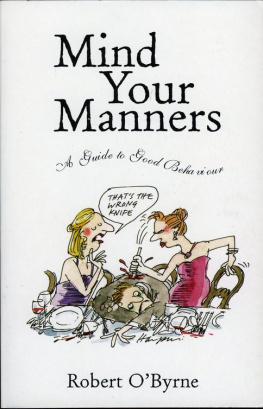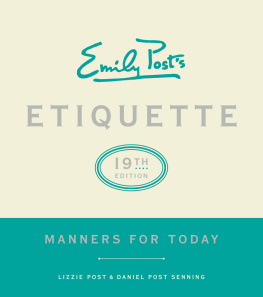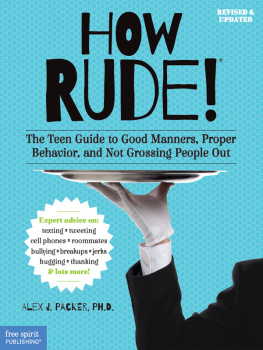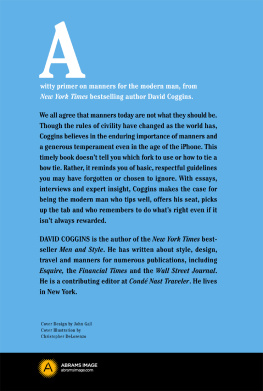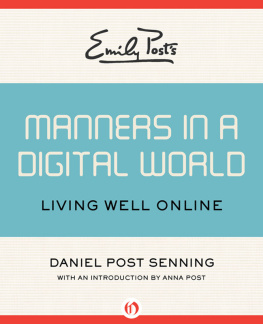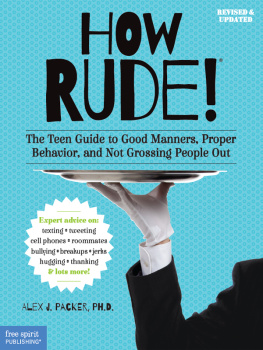The author and publisher have provided this e-book to you for your personal use only. You may not make this e-book publicly available in any way. Copyright infringement is against the law. If you believe the copy of this e-book you are reading infringes on the authors copyright, please notify the publisher at: us.macmillanusa.com/piracy .
To Gregg Sutter, whom I can always count onto do the right thing, to make me laugh, and to make me dinner.
ACKNOWLEDGMENTS
Writing a book is both a solo undertaking and a team affair, and in the latter department, Ive really lucked out.
Im exceptionally grateful to my editor at St. Martins, Michael Flamini, for his wisdom, taste, and humor, and for believing in me, and to my wonderful agents and ever-wise and kind guides, Cameron McClure and Ken Sherman.
Danielle Fiorella at St. Martins gave me the sort of cover that authors usually only dream of, and everyone at St. Martins has been behind me and this book in a way I am wildly grateful for.
Deep thanks go to: my boyfriend, Gregg Sutter, for all his love and support and for seeing that I always had something to eat besides the aging stack of Costco hamburgers in my freezer; Stef Willen, a talented writer who edited my rough manuscript and had the integrity to fight with me when she knew I was wrong; Etel Sverdlov, who gave me really important and helpful comments in the rough stages; Christina Nihira (The Velvet Whip) for her loyalty, wisdom, and kindness; copy editor David Yontz, the grammar ninja on this book and my syndicated column, who spots errors few others would and is incredibly good-natured when I (frequently) resort to this Elmore Leonard-ism: When proper usage gets in the way, it may have to go.
I so appreciate the generosity of those who read and gave me notes on my entire manuscriptanthropologist A.J. Figueredo, bioengineer Barbara Oakley, and biographer David Rensin. Thank you also to economist Tamas David-Barrett, who read several chapters that relate to his and Robin Dunbars research. And thanks to friends and family who read and commented on various chapters: Debbie Levin, Erika, Ruth Waytz, Christina Nihira, DB Cooper, and my incisive, wise, and wacky sister, Caroline Belli.
Im also extremely grateful to the members of the Human Behavior and Evolution Society, the NorthEastern Evolutionary Psychology Society, and the Applied Evolutionary Psychology Society, who have, for over a decade, been warm, welcoming, and helpful to me in my mission to turn their research into science news people can use.
This book was helped into being in part by the generosity, friendship, and support of a number of people in my life: Kate Coe; Sandra Tsing-Loh; Patt Morrison; John Phillips; Matthew Pirnazar; Marjorie Braman; Dee Dee DeBartlo; Andrea Grossman; free speech defender Marc J. Randazza; economist Robert H. Frank; Jackie Danicki; my blog commenter regulars; Maret Orliss, Ann Binney, and all the Los Angeles Times Festival of Books peeps; my New York family, the Housers; my Paris family, Mark, Chantal, Pierre, and Emily; and Linda and Linda at 18th Street Coffeehouse, who are wonderful to writers and ban cellboors.
And, finally, thank you to all of you readers who have bought this book and I See Rude People , and who do your part to make the world a less rude and more warm, welcoming, and amusing place for all of us.
CONTENTS
1.
2.
3. 4.
5. 6. 7.
8.
9. 10.
11. 12.
1
I DONT CARE WHERE YOU PUT THE FORK
(as long as you dont stab anybody in the eye with it)
This is not an etiquette book, filled with prissy codes of conduct to help you fit in to upper-class society (or at least passably fake it), and I am nobodys idea of an etiquette auntie. I dont know the correct way to introduce an ambassador or address a wedding invite to a divorce, and Im not sure where to put the water glasses, other than on the table. I kept this to myself when I got a call from a TV producer from one of the national morning shows. She had seen me in a thirty-second bit about civility on the Today show, loved that I wasnt the typical fusty etiquette expert, andwowwanted me to fly to New York to be the featured expert in a segment on manners and civility at the holidays.
Well start with the table, she said. How to set it and how to properly serve the turkey.
Fantastic! I liedsame as I wouldve if shed asked me to come on national TV and stick my head up a horses ass to look for lost watches.
I do have a grasp on certain table manners basics, like that you shouldnt lick your plate clean unless theres a power outage or youre dining with the blind, but Im basically about as domestic as a golden retriever. I dont cook; I heat. My dining room table is piled with books and papers. When my boyfriend makes me dinner, we eat balancing our plates on our legs while sitting on my couch. (Some men fantasize about kinky things to do in bed; he just wants to dine on a flat surface before were fed through tubes at The Home.)
My domestic failings aside, this was national TV, I needed to sell my book, I See Rude People , and I had a classy friend I could hit up for remedial table-setting and turkey-serving lessons. Of course, what I wanted to go on TV and say is what I actually think: What really matters isnt how you set the table or serve the turkey but whether youre nice to people while youre doing it.
Two days before I was to board the plane to New York (on a nonrefundable ticket the network asked my publisher to pay for), I called the producer to double-check that I was prepared for my segment. Uh um Ill call you back in five minutes from my desk, she said, and then she hung up. Two and a half hours later, I got an e-mail:
Subject: Saturday
In a message dated 12/8/10 12:22:01 PM,
Producer@unnamednetworkmorningshow.com writes: I just spoke to my executive producer who already had someone in mind for the segment. I am so sorry! And I am really enthused about you and what you have to say, so lets get you on the next time we have an etiquette segment. Producer at unnamed network
Of course, I never heard from her again. (Out of guilt, people whove done crappy things to you tend to treat you like youve done something crappy to them.) On the bright side, theyd dumped me from the segment while I was still at home in Los Angeles, unlike a California author friend of mine who learned shed been given the heave-ho when she logged on to her flights Wi-Fi over the Kansas cornfields.
Now, nobody owes me or anybody a spot on television, but when youve invited somebody to come on your show (especially your show on civility!), I do think you owe it to them to make sure you want themand ideally, before theyve booked a flight across the country on somebody elses dime. At the very least, when these mistakes are made, you could work your way past that Eeeuw, cooties! feeling we get about somebody weve wronged and do something to make it up to them instead of just saying you will.
This experience got me thinking about how simple it actually is to treat other people well. Life is hardly one long Princess Cruise for any of us, and there are times when youll have to fire or disappoint somebody. But at the root of manners is empathy. When youre unsure of what to say or do, theres a really easy guideline, and its asking yourself, Hey, self! How would I feel if somebody did that to me?
If everybody lived by this Do Unto Others rulea beautifully simple rule we were supposed to learn in Kindergarten 101I could probably publish this book as a twenty-page pamphlet. But so many people these days seem to be patterning their behavior on another simple rule, the Up Yours rulescrew you if you dont like it. I lamented this behavioral shift in a Los Angeles Times op-ed featuring a mother flying with her toddler and a blas attitude about his shrieking for over an hour before takeoffso loudly that the safety announcements couldnt be heard.
Next page

